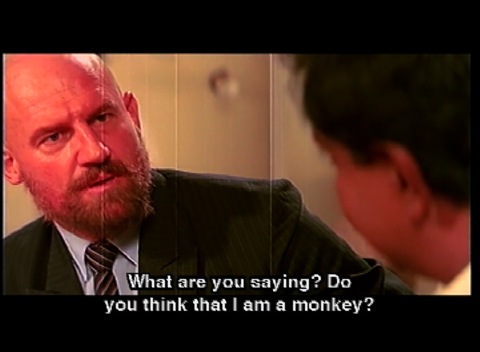I went to a student conference
recently and found out how small was my world. My thought was narrowly formed
by the rigid textbooks which recommends parochial one-sided views upon economic
policies. I do agree that the writers do give opposite arguments for every
economic issue, but one point or another is always given more weightage ,
stressed upon and preferred. It was unacceptable for me at first to discover
how different was other people's thoughts, and they do not make sense at all.
We were discussing about the
National Automotive Policy in the economic council. Imported cars were taxed up
to 300 percent the original price. A Mercedes at at a hundred thousand ringgit
in London is priced at three hundred thousand here. It is that way for Nissan, Toyota, Chevrolet and Honda. I
explained that as a middle-income nation, with 60 percent of the population
having a monthly income of less than 3 thousand, the people have to pay one
third of their wages for cars alone. That is a lot of money. If they can pay
less for cars, then the people would have more income at their disposal. The
money can and should be used to sponsor education for the children, better
nutrition , and perhaps a better house. Tax revenue of 8.1 billion from cars and APs will then be gone, but it is not lost. The
people have more disposable income, and this adds strength to domestic demand.
I thought that I would be
receiving major support, but I was wrong. This is the general opinion;
1. Malaysians can
afford to pay the tax up to 300% , as there are a lot of BMWs and Mercs on the
road.
2. The loss of tax
revenue is too big and unsustainable.
3. Cheaper cars will
go against the motives of public transportation, and will incur more pollution.
They tend to view this argument
from a rich man's point of view, because, well, they are from rich families. I
handle my own expenses alone, drive my own cars and I know how costly is the
price of fuel, plus the road taxes, and there are no BMWs in my village. Our
backgrounds really influence the way we
view things. They never felt the overwhelming cost, because they are the 1%.
Malaysians can't afford the
excessive amount of taxation. It is ridiculously high, taking one third of
their income. The tax is not lost, it is reproduced in another manner;
disposable income is higher. Our public transportation sucks, never efficient
and causes terrible mental stress and loss of time, and it is nowhere near
sustaining the public needs.
Then we spoke about subsidies.
Pertaining subsidy rationalization , they wholeheartedly believe that subsidy
should be reduced. Malaysians are too pampered, they said, We people are a rich
bunch , they said. It seems that living
in a big house with four cars really change the way you view the world. They
somehow managed to stereotype Malaysians as people who cannot live without air
conditioners, and everyone drives expensive cars. We were somewhat ignorant to
the fact that the people's average income had stagnated for the past two
decades, and is not proportional to the rate of inflation.
Reducing subsidies for fuel will
spark a cost-push inflation, price of goods will rise automatically, and only
the top 1% of the income group can actually sustain themselves. I mean,
seriously, this is basic economics, a fixed textbook theory, can't they see it
to that point?
Those men in the ministries who
proposed for subsidy rationalization are the 1% percent themselves; they are
the elites, they do not speak for the poor. Economists are people with high
income who are unable to form a perspective from a regular citizens' point of
view.
"And what Allah restored to His Messenger from the people of the towns - it is for Allah and for the Messenger and for [his] near relatives and orphans and the [stranded] traveler - so that it will not be a perpetual distribution among the rich from among you. And whatever the Messenger has given you - take; and what he has forbidden you - refrain from. And fear Allah ; indeed, Allah is severe in penalty." ( Al-Hasyr, 7)
We people don't care if the nation have an
outstanding budget surplus or a behemoth GDP, they don't make sense at all to
us. 5 percent growth or a high competitiveness rank have nothing to do with our
lives, so them economists can either shut up or say something closer , more
significant to the lives of citizens. I mean, who cares if the current interest
rate is 3 percent? Why would that matter? The things that matter is the prices of sugar
and salt, gas and cars. Or the fact that more than 900 billion of illegal money
had been robbed away from this country from 2000 to 2008; they should focus
upon that fact rather than asking the people to pay more, 'be thankful', sacrifice
for a greater good, or whatever terms
those government bloodsuckers use nowadays.
Rather than introducing GST and reducing
subsidies, the government should really curb the overwhelming corruption, or
else they must go down.
I learned one thing that is vital from
Economics; the Malaysian government is full of crap.
Peace.















